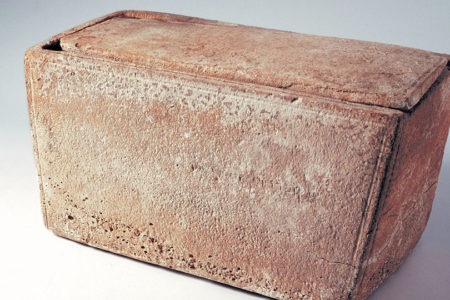Play Ball!
Sports radio, a relative newcomer in the arena known as talk radio, is a result of the mutual admiration between professional athletes and the fans who watch them.
The last names of the people who produce, direct, and host many of these programs read like the membership list of a typical synagogue. Add in the people who frequently call these shows, and you can quickly see that many Jewish people are passionate about sports. In fact, Jewish people around the world love sports; and their fervor is not limited to one type.
In Israel, soccer and basketball are extremely popular, with fans filling arenas and watching regularly on television. Canada’s Jewish population has an avid love for hockey. In New York City, home of the largest Jewish population in the world outside Israel, fans speak of their sports teams with the same passion as yeshiva students debating the Talmud.
Yet, according to traditional Judaism, this zeal for sports should never have arisen. Dating back to the time of Hellenism (323 B.C.–30 B.C.)1, Jewish leaders taught that involvement in sports was pagan. In those days, athletes participated in the nude. The practice was considered unclean, a violation of both rabbinic teaching and Hebrew Scripture.
Jewish people knew that to practice paganism was considered rebellion against God. Rather, they were to pursue separated, sanctified living. In addition, with little free time available, athletics were considered wasteful. Therefore, it was felt that time would be better spent studying and learning, rather than becoming polluted by the world. Through the years, this emphasis has resulted in a people much better known for producing doctors, lawyers, teachers, and social workers than athletes who could hit home runs, score touchdowns, sink baskets, or score goals.
Around two thousand years later, the Holocaust dramatically changed the Jewish community of Europe, and millions of Jewish people bravely made the move from the Old World to America.
Over time Jewish families in America became less observant in their faith than they were in Europe. Their strong work ethic, allowed to flourish in a country blessed with freedom, eventually afforded them access to a lifestyle with increased leisure time. And their free environment provided accessibility to the national culture, which exposed them to new interests.
Consequently, there arose a new generation of Jewish people who began to transfer to sports the zeal their parents and grandparents had applied to religion. The scenario was mirrored in almost every free country where Jewish people found themselves.
On October 6, 1965, Jewishness and professional athletics collided in a way that profoundly affected the Jewish community. If you ask Jewish people born in the 1950s or earlier what happened that day, and you remind them that it was Yom Kippur (Day of Atonement), the highest holy day on the Jewish calendar, you might see a grin spread across their faces. I remember that date well. Like most Jewish people, I spent the entire day with my family in shul (Yiddish for “synagogue”). Between liturgies, there was much talk that had nothing to do with atonement. It centered, of all things, on baseball.
The World Series had started that afternoon between the Minnesota Twins and Los Angeles Dodgers. It was the opening game, the most important in the seven-game series of a sport that was arguably the most popular one in America at the time. The identity of the teams was of little or no concern to our Cleveland, Ohio, congregation. Even the fact that one of the teams had a Jewish pitcher was not sufficient motivation to talk during the service.
What generated the enormous buzz in our synagogue that day was the fact that the Dodgers’ Jewish pitcher, Sandy Koufax, had made a decision that rocked the news media and spread like wildfire across the nation’s newspapers and airwaves. Koufax had refused to pitch the first game of the Series because it fell on Yom Kippur.
His reason was simple: He was Jewish. Just how big was that personal decision? Big enough that it had the entire Jewish community in the United States talking. And big enough to become a subject that Jewish people still discuss today.
In her book Sandy Koufax (Harper Collins), published only last year, Jane Leavy put it this way:
By refusing to pitch, Koufax defined himself as a man of principle who placed faith above craft. He became inextricably linked with the American Jewish experience. . . . In Jewish households, he was the New Patriarch: Abraham, Isaac, Jacob, and Sandee.2
His decision enshrined him forever in Jewish hearts; and Koufax, now 67, is spoken of fondly to this day:
You see him on the menu at Gallagher’s Steak House in New York, on the wall mural celebrating the history of the Jews outside Cantor’s deli in Los Angeles,…on the library shelves at the Washington Hebrew Congregation in Washington, D.C. The [his] paperback biography, a quickie clip job published in 1968, was so well thumbed librarians had to put it between hard covers. It remains the most asked for book in the synagogue’s children’s collection.3
Sandy Koufax was not an observant Jew; but Rabbi Hillel Silverman, whom Ms. Leavy said “annually invoked Koufax’s name in his Yom Kippur sermon,” provided Koufax’s reasoning. Rabbi Silverman said Koufax told him, “I’m Jewish. I’m a role model. I want them to understand they have to have pride.”4 The rabbi told his congregants, “Not being observant and feeling a connection with his people, it’s [Koufax’s refusal to pitch] an even greater sacrifice.”5
Although he might be the best known of Jewish athletes, Sandy Koufax is not the only one. In fact, quite a number of them “rebelled” and found their place in the world of sports. The following list is by no means exhaustive, but rather provides a few names of Jewish people who have contributed significantly to the field of sports.
Baseball
Few people realize that Lipman Pike was “the first Jewish major leaguer” and “baseball’s first undisputed homerun king”6 or that Ron Bloomberg was the first designated hitter. Yet many are familiar with the names of infielder Al Rosen; outfielders Hank Greenberg, Shawn Green, and Gabe Kapler; and pitchers Steve Stone and Ken Holtzman. Jewish Americans have long been enamored with the game of baseball.
Basketball
Eddie Gottlieb may not be the name on everyone’s tongue; but the fact is, Gottlieb was a founder of the National Basketball Association (NBA), a successful coach and basketball “mogul,” and a member of the Basketball Hall of Fame.
One of the most successful basketball coaches, winning nine NBA titles and called the “4th winningest coach” in NBA history, is Arnold (Red) Auerbach—also the Boston Celtics’ successful general manager and president. William (Red) Holzman was the Hall of Famer who led the New York Knicks to their only two NBA championships and 613 victories.7 Wrote Robert Slater: “He compiled a better record than any other active coach in pro basketball.”8 Larry Brown, a former American Basketball Association player, is known for his superb coaching in both college and professional basketball.
Ernie Grunfield, a former NBA player, served as general manager of the New York Knicks and currently serves in the same position for the Milwaukee Bucks. Adolph and his son Dan Shayes both played in the NBA. Abraham “Abe” Saperstein founded the world famous Harlem Globetrotters. And the current NBA commissioner is David Stern.
Olympics
Many people know the name Mark Spitz, considered by some to be the greatest Jewish athlete of all time. In the 1972 Olympics, Spitz swam his way to a record seven gold medals.
And who can forget 18-year-old Kerri Strug, who in 1996 bravely vaulted the U.S. Women’s Gymnastics Team to its first gold medal in history despite a broken ankle? The late Charlotte “Eppy” Epstein is considered “the mother of American women’s swimming.”9 She led the first women’s team in the Olympics in 1920. Harold Abrahams became better known as people viewed the Academy Award-winning movie Chariots of Fire. Abrahams won the Olympic gold for England in the 100-meter dash in 1924.
Yael Arad became the first Israeli to win an Olympic medal, winning the silver medal in judo in the Barcelona Olympics in 1992. Jewish athlete Margareth Nergman never made it to the Olympics because the Nazis forced her off the German team in 1936. She excelled in fencing and the high jump.
Football
There have been but a few Jewish American football players. Ron Mix, a Hall of Famer, played the obscure position of offensive lineman, while Randy Grossman was a less successful tight end. Current quarterback for the Miami Dolphins, Jay Fielder, is trying to follow in the footsteps of Sid Luckman, who led the Chicago Bears to four titles and was named the NFL’s most valuable player three times. Marv Levy coached the Buffalo Bills to four Super Bowls. Owners of NFL teams include the late Leon Hess of the New York Jets; current owner of the Oakland Raiders, Al Davis; and the New York Mets’ Fred Wilpon.
Others
Several Jewish people have been successful at tennis, including Angela Buxton who won the Wimbledon doubles championship in 1956 and became the world’s fifth ranked women’s player that year. Highly ranked Brian Gottfried played in the ’70s and ’80s, and Brad Gilbert plays now.
It would be remiss not to mention the names of several Jewish men who left their mark as sports announcers. These include the late greats Howard Cosell, Mel Allen, and Marty Glickman. When Glickman was eighteen, the Nazis barred him from competing in the 1936 Berlin Olympics as a sprinter because he was Jewish.
The Jewish love for athletics, coupled with the success of various Jewish athletes, resulted in the founding of the Jewish Sports Hall of Fame in 1979 in Netanya, Israel, not far from Tel Aviv.10 Those honored are distinguished athletes who are recognized for their extraordinary abilities.
Unfortunately, the world loves stereotypes. It projects an image of Jewish people as financiers, doctors, and lawyers. Certainly many Jewish people hold positions that require much education, partly because education is one thing persecution cannot take away from you. But they have left their mark in other areas as well, and their accomplishments in sports have blessed millions around the world.
ENDNOTES
- “Hellenism,” EncyclopaediaJudaica, CD-ROM edition, 1997.
- Jane Leavy, Sandy Koufax: A Lefty’s Legacy (New York: HarperCollins, 2002), 171.
- Ibid., xiv.
- Ibid., 183
- Ibid.
- Peter S. and Joachim Horvitz, The Big Book of Jewish Baseball, cited in [www.authorsden.com/visit/viewwork.asp?AuthorID=9386&id=6758].
- “William (Red) Holzman, [www.infoplease.com/ipa/ A0771448.html].
- Robert Slater, Great Jews in Sports (Middle Village, N.Y.: Jonathan David Publishers, 1983), 141.
- Ibid., 70.
- Ibid., 335







